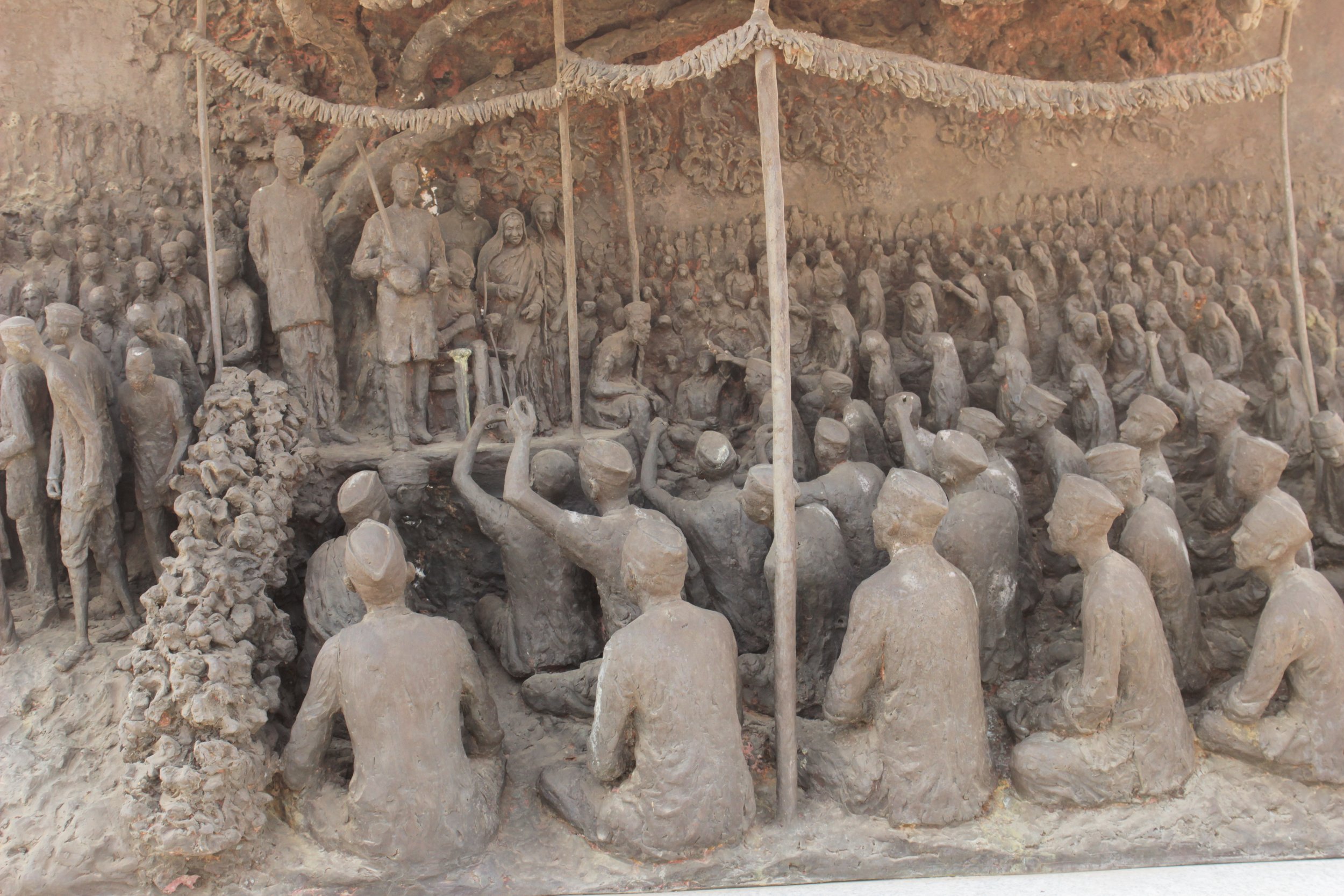Satyagraha: A Word You Should Know in 2024
Since the presidency of Donald Trump, our growing preoccupation with deceptive forms of political communication can be charted in the way that terms like “Big Lie,” “election denialism,” “conspiracy theory,” disinformation,” and “propaganda” have come to dominate narratives about political discourse.
Such terms point to ways that authoritarian leaders, or would-be authoritarians, attempt to sow mistrust in ourselves and our institutions so that only loyalty to the leader becomes the measure of what’s real and what isn’t. Disloyalty is to be suppressed by violence or threats of violence.
Considering our current condition, we’d do well to broaden our political vocabulary, taking in terms that remind us that truth-telling and truth-seeking can be powerful collective endeavors. “Satyagraha” is such a term.
M.K. Gandhi coined this word in 1906, when he was leading a nonviolent campaign of civil resistance against a discriminatory law targeting Indians living in South Africa. Since the Sanskrit word “satya” means truth, the term literally means “holding onto truth,” or “holding fast to truth.” And since Gandhi understood truth in an ethical and spiritualized sense, i.e. as love itself, the term came to be understood as “soul-force” or “truth-force.”
In the years and decades that followed, the term satyagraha was attached to different campaigns for freedom and justice, including the famous 1930 salt satyagraha that played a significant role in advancing India toward independence from British rule. That campaign, like other experiments in satyagraha, was grounded in its adherence not only to factual truth (i.e. the inequities of the British salt tax and its burdens on the Indian poor) but also in ethical truths about the inherent oppressiveness of British colonialism itself.
A similar adherence to both factual and ethical truth can be seen in American nonviolent movements inspired by Indian satyagraha. Dr. Martin Luther King could pinpoint, in “Stride to Freedom: The Montgomery Story,” the granular details of racial inequity in housing, employment, and voter registration that helped lead to the Montgomery Bus Boycott of 1955-56. But by the same token, and in the same narrative, he could articulate the ethical truths underlying the year-long campaign to integrate Montgomery’s public transportation. These are truths about the interrelatedness of human life, formulated in statements like, “to the extent that I harm my brother, no matter what he is doing to me, to that extent I am harming myself.”
What redeems statements like this from the status of platitude is another key dimension of satyagraha: the application of these ethical principles and assumptions to action, whether it takes the form of a boycott, a sit-in, a general strike, or any of a number of other strategies and tactics. This application constitutes the “force” (i.e. “truth-force,” “soul-force”) dimension of satyagraha, and it requires collective discipline and often great courage. As Gandhi biographer Tara Sethia noted, “by translating his ethics of truth and nonviolence into ethics of action, Gandhi unleashed a revolutionary force for constructive and positive social change.”
The rootedness of satyagraha in collective action also reminds us that truth itself is not static, that the “self-evident” truth that flowed from Thomas Jefferson’s pen in the Declaration of Independence (“all men are created equal”) has expanded far beyond its original, principal association with propertied white males – and that this expansion owes to courageous, decades-long struggles for racial, gender, and economic equality.
These struggles continue today. Activists striving for equality and justice, including climate justice, may not necessarily use the word satyagraha, but they are nevertheless engaged in what Gandhi called “experiments with truth,” exploring and advancing each day understandings of the deep interrelatedness of factual and ethical truths.
Indeed, the election workers and election officials who “held the line” in the 2020 election were, in their own way, “holding fast” to truths about genuine democracy: that it is inherently nonviolent, that it requires courage, that it resists violent efforts to suppress votes and voices—and that it advances equality in the broadest sense: as a fully inclusive engagement in the co-creation of our collective destinies.
Andrew Moss, syndicated by PeaceVoice, writes on labor and nonviolence from Los Angeles. He is an emeritus professor (Nonviolence Studies, English) from the California State University.

